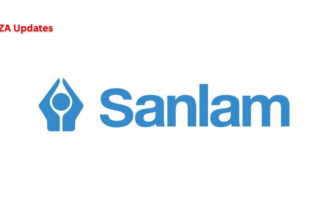What is a National Senior Certificate (NSC)? The National Senior Certificate (NSC) is the official school-leaving qualification awarded to learners after they complete Grade 12 (matric) in South Africa. Managed and certified by Umalusi, the national quality assurance body, the NSC plays a crucial role in shaping students’ futures by opening doors to higher education, vocational training, and employment opportunities.
Whether you aim for university, want to enter a trade, or are looking for a learnership, the NSC certificate is the key credential you need.
Why is the National Senior Certificate Important?
The NSC does more than just mark the end of high school, it serves as proof that a learner has acquired essential academic skills and knowledge. The certificate influences:
- University and college admissions
- Access to learnerships and internships
- Qualification for various entry-level jobs
- Eligibility for TVET college programs and apprenticeships
Structure of the NSC Curriculum
To obtain the National Senior Certificate, learners must complete and pass seven subjects, which include:
- Two official languages (one Home Language and one First Additional Language)
- Mathematics or Mathematical Literacy
- Life Orientation
- Three elective subjects, which may include:
- Business Studies
- Physical Sciences
- Geography
- History
- Accounting
- Tourism
Students are assessed through:
- Continuous Assessment (CASS) (25% of the final mark)
- Final national exams (75% of the final mark)
NSC Pass Levels and Their Meaning
The NSC comes with different pass categories, which determine your post-school opportunities:
| NSC Pass Level | Minimum Requirements | What It Allows |
|---|---|---|
| Higher Certificate Pass | 40% in Home Language, 40% in two other subjects, 30% in others | Entry to Higher Certificate courses at TVETs |
| Diploma Pass | 40% in Home Language, 40% in three other subjects, 30% in others | Entry to Diploma studies at universities/TVETs |
| Bachelor’s Degree Pass | 40% in Home Language, 50% in four subjects, 30% in others | Entry to University Bachelor’s Degree programs |
Applying to University with an NSC
A Bachelor’s Degree pass on your NSC is the first step toward university admission. However, you must also meet specific APS (Admission Point Score) and subject criteria set by the university and your chosen course.
Example Admission Requirements for a BCom in Accounting:
- NSC with Bachelor’s Degree Pass
- Minimum 60% in Mathematics
- Minimum 50% in English
- APS: Usually 25 or higher
If you don’t meet the requirements for a degree, you can still pursue:
- Extended Degree Programs
- Bridging Courses
- TVET College Qualifications
Learnerships After NSC
A learnership is a vocational training program that blends classroom instruction with real workplace experience, resulting in an NQF-accredited qualification. Even with a Higher Certificate pass, you may qualify for many government or private sector learnerships.
Popular Learnership Fields for NSC Holders:
- Business Administration
- Information Technology
- Hospitality Services
- Construction & Engineering
- Retail and Sales
Top Learnership Providers:
| Provider | Sector |
|---|---|
| BankSETA | Banking and Finance |
| MERSETA | Manufacturing and Engineering |
| Services SETA | Hairdressing, Travel, Cleaning |
These programs are often fully funded and offer a monthly stipend, making them ideal for unemployed youth.
Internship Opportunities for NSC Graduates
While many internships are designed for university graduates, some entry-level internships are open to NSC holders—especially in administrative or public service roles.
Examples of Internships for NSC Holders:
- Administrative Internships in Government
- Youth Employment Service (YES) Programmes
- Public Service Internship Programmes
These internships typically last from 6 to 24 months and include a stipend to support living expenses while gaining practical skills.
Job Opportunities with a National Senior Certificate
Even without pursuing further education, NSC holders can apply for various entry-level positions across industries. Some jobs may require additional short courses or certifications (like PSIRA for security work), but many employers accept NSC as a basic qualification.
Common Jobs for NSC Holders:
- Retail Sales Assistant
- Cashier
- Receptionist
- Data Capturer
- Call Centre Agent
- Administrative Clerk
- Security Guard
Industries Hiring NSC Holders:
| Industry | Examples |
|---|---|
| Retail | Shoprite, Pick n Pay, Spar |
| Hospitality | Hotels, Restaurants, Catering Services |
| Logistics | Courier Services, Warehousing |
| Customer Service | Call Centres, Tech Support |
| Public Sector | EPWP, Admin Internships |
Some companies even offer on-the-job training, allowing NSC graduates to develop skills and grow into more senior roles.
TVET Colleges and Apprenticeship Options
TVET (Technical and Vocational Education and Training) colleges offer an excellent route for learners who are not university-bound but still want a recognized qualification. These institutions focus on practical and job-oriented skills.
TVET College Programs Include:
- NCV (National Certificate Vocational)
- NATED (N1–N6) courses
- Artisan Training
Popular Fields of Study at TVET Colleges:
- Electrical Engineering
- Plumbing
- Welding and Boilermaking
- Office Administration
- Hospitality and Tourism
- Motor Mechanics
These qualifications are highly respected and provide access to trade test exams, apprenticeships, and employment in skilled trades.
Conclusion
The National Senior Certificate (NSC) empowers South African learners with access to further education, training, and employment. Whether through university, learnerships, or TVET colleges, the NSC opens multiple career pathways for personal and professional growth.










